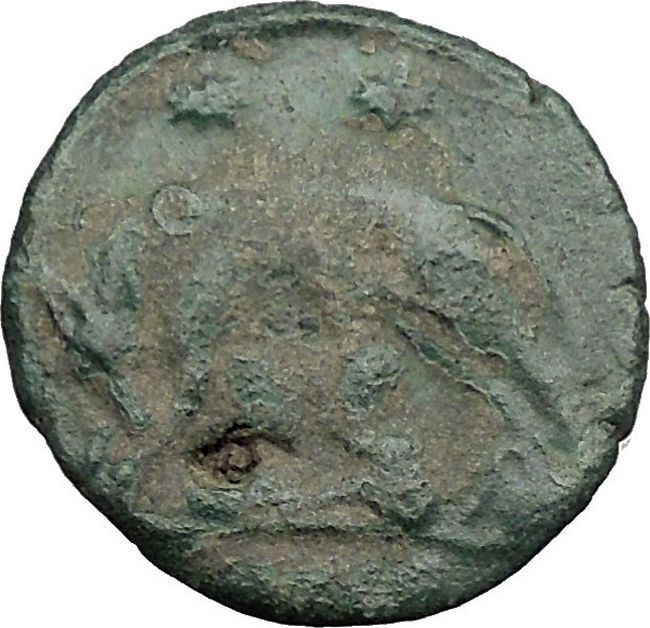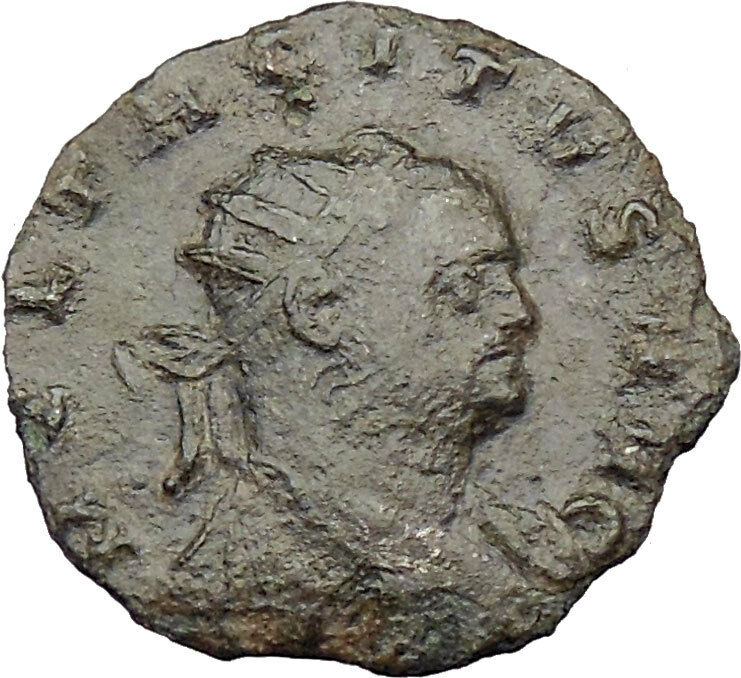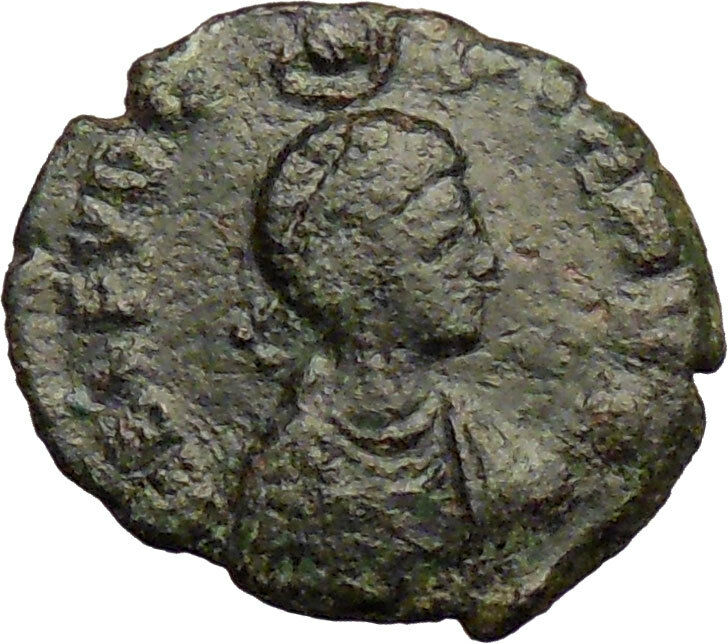|
Constantine II ‘Junior’ – Roman Emperor: 337-340 A.D. –
Bronze AE3 20mm (2.35 grams) Thessalonica mint circa 337-340 A.D.
Reference: RIC 157 (VII, Thessalonica)
CONSTANTINVSIVNNOBC – Laureate, draped and cuirassed bust left.
PROVIDENTIAECAESS Exe: SMTS – Military Camp gate with two turrets and star above.
A military camp or bivouac is a semi-permanent
facility for the lodging of an
army. Camps are erected
when a military force travels away from a major installation or fort during
training
or
operations,
and often have the form of large
campsites.
In the
Roman
era the military camp had highly stylized parameters and served an entire
legion.
Archaeological investigations have revealed many details of these
Roman camps
at sites such as
Vindolanda
(England)
and
Raedykes
(Scotland).
You are bidding on the exact item pictured,
provided with a Certificate of Authenticity and Lifetime Guarantee of
Authenticity.
  The The
Latin word
castra , with its
singular castrum, was used by the ancient Romans to mean buildings
or plots of land reserved to or constructed for use as a military defensive
position. The word appears in both
Oscan and
Umbrian (dialects of
Italic) as well as in
Latin. In classical Latin the word castra
always means “great legionary encampment”, both “marching”, “temporary” ones and
the “fortified permanent” ones, while the diminutive form castellum
was used for the smaller forts, which were usually, but not always, occupied by
the auxiliary units and used as logistic bases for the legions, as explained by
Vegetius.[3]
A generic term is praesidium (“guard post or garrison”). The terms
stratopedon (“army camp”) and
phrourion (“fort”)
were used by
Greek language authors, in order to designate
the Roman castra and the Roman castellum respectively. In
English, the terms “Roman fortress”, “Roman
fort” and “Roman camp” are commonly used for the castra. However the
scholars’ convention always requires the use of the word “camp”, “marching camp”
and “fortress” as a translation of castra and the use of the word “fort”
as a translation of castellum and this type of convention is usually
followed and found in all the scholarly works.
Flavius Claudius Constantinus, known in English as
Constantine II, (316-340) was
Roman Emperor from 337
 to to
340. The eldest son of
Constantine the Great and
Fausta, he was
born at
Arles,
and was raised as a Christian.
On
March 1,
317,
Constantine was made
Caesar, and at the age of seven in 323, took part in his father’s campaign
against the
Sarmatians. At the age of ten he became commander of
Gaul, after the
death of his half-brother
Crispus. An
inscription dating to 330 records the title of Alamannicus, so it is
probable that his generals won a victory over the
Alamanni.
His military career continued when Constantine I elected his son field commander
during the 332 campaign against the
Goths.
Following the death of his father in 337, Constantine II
became emperor jointly with his brothers
Constantius II and
Constans.
After the division of the empire, made by the three brothers in September of the
same year in Pannonia, he ruled over
Gaul,
Britannia and
Hispania.
He was involved in the struggle between the different
Christian streams. The Western portion of the empire leaned towards
Catholicism and against
Arianism,
and Constantine freed
Athanasius and allowed him to return to
Alexandria.
This action also put some burden on Constantius II, who was a supporter of
Arianism.
At first, he was the guardian of his younger brother Constans, whose portion
was
Italia,
Africa and
Illyricum. As Constans came of age, Constantine would not relinquish the
guardianship and in 340 he marched against Constans in Italy, but was defeated
at
Aquileia
and he was killed in an ambush in
Cervignano del Friuli. Constans came to control his deceased brother’s
realm.

Division of the Roman Empire among the Caesars appointed by
Constantine I: from left to right,
the territories of Constantine II,
Constans I,
Dalmatius and
Constantius II. After the death of
Constantine I (May 337), this was the formal division of the Empire,
until Dalmatius was killed and his territory divided between
Constans and Constantius.
|







 The
The to
to 



